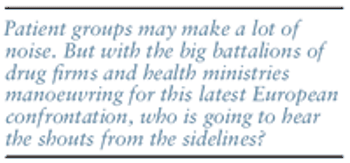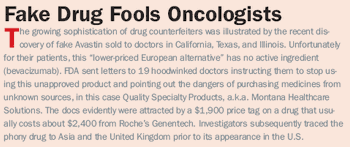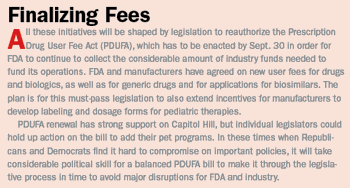
With the Supreme Court’s decision in June to uphold the Patient Protection and Affordable Care Act (ACA), life science companies gained access to 32 million potential new customers.

With the Supreme Court’s decision in June to uphold the Patient Protection and Affordable Care Act (ACA), life science companies gained access to 32 million potential new customers.

The new head of EFPIA faces a Promethean challenge: selling the merits of costly science and innovation in an era of bristling competition, fiscal crisis, and declining demographics.

The most obvious competitors for Sanofi’s Aubagio, the second oral multiple sclerosis (MS) drug to receive FDA approval, would appear to be Novartis’ Gilenya.

Europe's fiscal crisis is becoming a new rallying cry for patient groups-but regional unity is still elusive.

Bending the cost curve back to valuing the cycle of life.

Well, we certainly have a presidential campaign now, don’t we? Good grief. Since Rep. Paul Ryan was named the Republican VP candidate last week.

Comparative research documenting value and affordability is key to obtaining coverage for high-cost therapies. Jill Wechsler reports.

It’s back to business for pharma and biotech companies. The main result of the Supreme Court decision upholding the Affordable Care Act (ACA) is that it ends all the rampant speculation and uncertainty about the future shape of the U.S. healthcare system.

So, it looks like June 25th will be the moment of truth we have all been anticipating. The Supreme Court is expected to hand down its ruling on the 2010 healthcare reform law. Who knows what will happen?

A recent medical device controversy in France has pushed European health ministers to agree on a crisis management program for the troubled sector.

A rash of "pro-innovative" approaches for testing and regulating medical products offer ways to speed more new products to market.

Legislation to reauthorize Food and Drug Administration user fee programs sailed through the House and Senate last month, setting the stage for leading legislators to resolve their differences and agree on a compromise measure.

To gain market access in emerging markets, pharma companies face pressure to offer a convincing Corporate Value Proposition to governments.

The Supreme Court's Decision on whether pharma sales reps should qualify for the 'outside sales exemption' could have far reaching implications, write Lisa A. Schreter and Kimberly J. Gost.

Disclosure rules the day, as industry confronts demands to report supply problems, results of clinical trials, and payment to doctors.

While regulatory frameworks and medical practices differ between countries, many patients still need early access to new drugs. Industry can help.

How can we better balance addressing medical needs with ensuring that new drugs are safe and effective? Ron Cohen reports.

Our annual press audit finds that the big news in 2011 for pharma was ... no news.

FDA and industry are pushing user fees, while they struggle with curbs on communications.

Guido Rasi, the European Medicine Association's new executive director, faces many challenges, says Reflector, not least shaking off the legacy of his early predecessor, Duilio Poggiolini.

The Patient Protection and Affordable Care Act (?PPACA?) requires manufacturers to record, aggregate and report to the federal government ?payments and other transfers of value? to a covered recipient. This article will focus on the two key convention-related items under PPACA: food and educational products.

Last week, FDA Commissioner Margaret A. Hamburg testified before the House Committee on Energy and Commerce, Subcommittee on Health to outline the agency’s case for supporting the fifth authorization of the Prescription Drug User Fee Act (PDUFA), also known as PDUFA V.

After two years of waiting, FDA issued the first in a series of planned guidelines on social media at the end of last year. We look at some of the experts' reactions.

Look for action in 2012 on drug access, shortages, innovation, and transparency.

A key consideration under the Affordable Care Act is how states select plans for drug coverage.